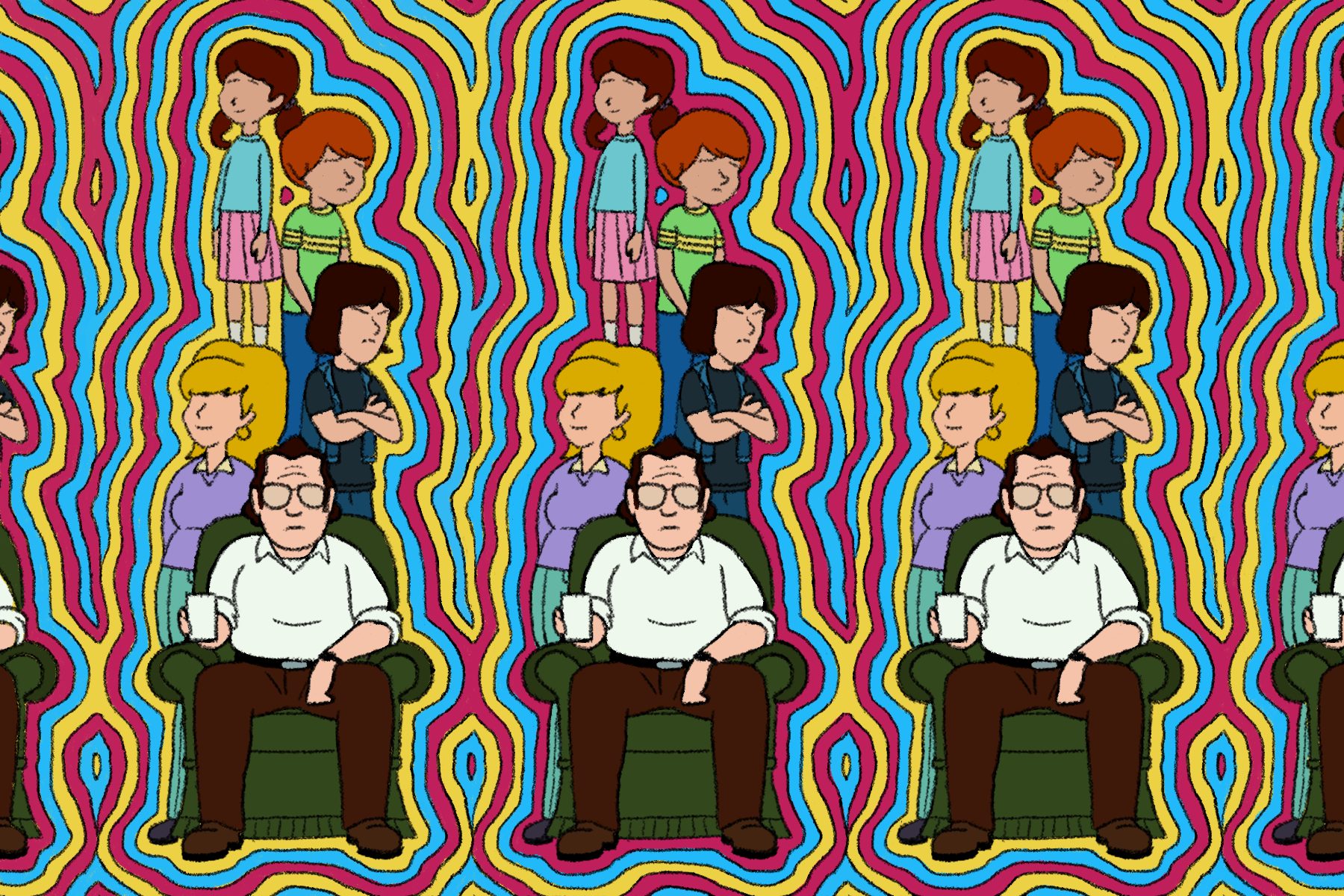“F is for Family” is an unapologetically raunchy animated television series created by Bill Burr and Michael Price, which can be found on Netflix. The show takes place in the 1970s and was recently confirmed to have a fifth season in production.
“F is for Family” follows a suburban family, with each character exhibiting at least one problematic trope. Frank, the breadwinner of the house, works at an airport in his small town. He is negative, foul-mouthed, sexist and emotionally abusive to his children. Sue Murphy, Frank’s wife, is a housewife confined by the restrictive times and wants to find more in life than housekeeping and raising children. Kevin Murphy, the oldest son, is a menace to society who loves making music, doing drugs and blowing off school. Bill, the middle child, is bullied relentlessly by older children and is constantly forced to face the sexual nature of society. Finally, Maureen, the youngest daughter, is intelligent and passionate but lacks praise from her parents. She often engages in reckless behaviors and contributes to torturing her brother Bill.
Taking “F is for Family” at face value, viewers may be frightened by the vulgarity, overtly racist, sexist and homophobic remarks, as well as the abuse that the children face at the hands of their disgruntled father. If viewers are willing to look deeper, they will find a hilarious commentary on the problematic nature of the ’70s.
If you have been longing for an escape to the past or an opportunity to live out your disco dreams, “F is for Family” will crush that. The offensive and raunchy humor of the show satirizes the problematic opinions of the ’70s and often places characters in ironic situations where they must decide between their dated viewpoints and reality. The show takes place in “a time when you could smack your kid, smoke inside, and bring a gun to the airport.”
Deconstructing Offensive Comedy
One of the most memorably offensive episodes is “Landing the Plane,” when a plane flying to the airport that Frank works at is hijacked. The scene becomes increasingly alarming as a fellow employee knocks out two of the hijackers and then subsequently explodes after stepping on a suitcase-bomb. The “cinematic nihilism” is overwhelming in this episode. It challenges the values that modern-day society holds dear in the goriest and most unnecessary way possible.
This episode is able to remain comical though, because the character who dies is thoroughly unlikeable and unimportant to the plot, and the death of this man results in Frank’s promotion. How typical of Frank’s character to receive his first stroke of good luck in a long time due to a suitcase bomb and a terrorist attack.
Another recurring joke that attacks the values of modern America exists within the character of Otto Holtenwasser. This elderly man lives in Frank’s neighborhood and terrifies the children of the town because they believe that he’s a Nazi. The irony of this fear becomes apparent when it’s revealed that he’s actually a Holocaust survivor and also happens to be one of the few truly empathetic characters in the show. Holtenwasser exists as a funny side joke that pokes fun at the ignorance of ’70s America, post World War II.
The children’s deeply rooted ignorance, due to a flawed education system, demonizes all Germans and leads the children to assume that any German man is a Nazi. Initially, the viewer is made to believe the possibility of Holtenwasser being a Nazi, until the poor soul stumbles out of his house with his camp entry number tattooed on his arm, waving happily to the horrified children. It may be insensitive to joke about Holocaust survivors, but the joke works because it acts as a commentary on the ignorance of the ’70s and the problems within the American education system.
An examination of Phillip Pope John XXIII Bonfiglio will expose the problematic understanding of mental health in the ’70s. Phillip is the geeky neighbor and best friend of Bill. He whines constantly and is allergic to cheese, wheat, tomatoes and water. Phillip has many psychological problems and does not have a good outlet to release his anger. He is seen multiple times in hilarious fits of rage and often spends his time alone ripping out his eyebrows one by one.
While Phillip is a severe exaggeration of what mental health issues look like, his inability to find a way to vent his anger speaks volumes. Phillip has not grown up in a society that understands mental health, and rather than receiving help to channel his anger and finding ways to address it, he constantly faces repercussions for his outbursts. For viewers of “F is for Family,” Phillip will be a constant laugh, but also act as a call for society to address mental health in children.
Why It’s Different and Why You Should Watch
I have long been guilty of binge-watching shows instead of fully appreciating them, but “F is for Family” allowed me to reach a new level of binge. I watched all four seasons of the show in less than a week. “F is for Family” will captivate you with its characters, who are somehow both the repetitive tropes we’ve seen for years and multidimensional characters capable of change. I have never been a fan of raunchy animated television, such as “The Simpsons,” because I’m unable to relate to the characters; they rarely develop and there isn’t a continuous plotline.
While “F is for Family” has occasional outbreaks of stupidity that seem irrelevant to the plotline, you will watch a dysfunctional family develop into a substantially different but still dysfunctional family. You will root for the characters despite their flaws, laugh at their failures and beam at their successes. “F is for Family” is not for the faint of heart, or for those scared of profanity, but it offers raunchy humor in a way that you won’t feel guilty binging.
















